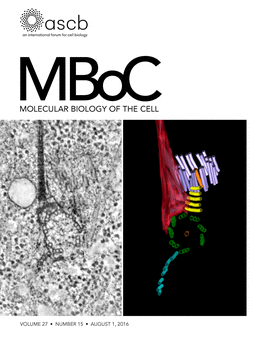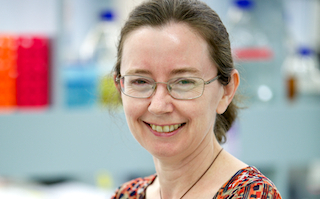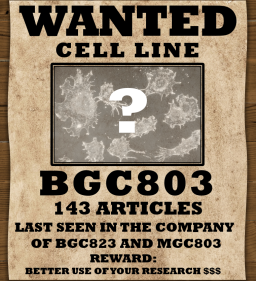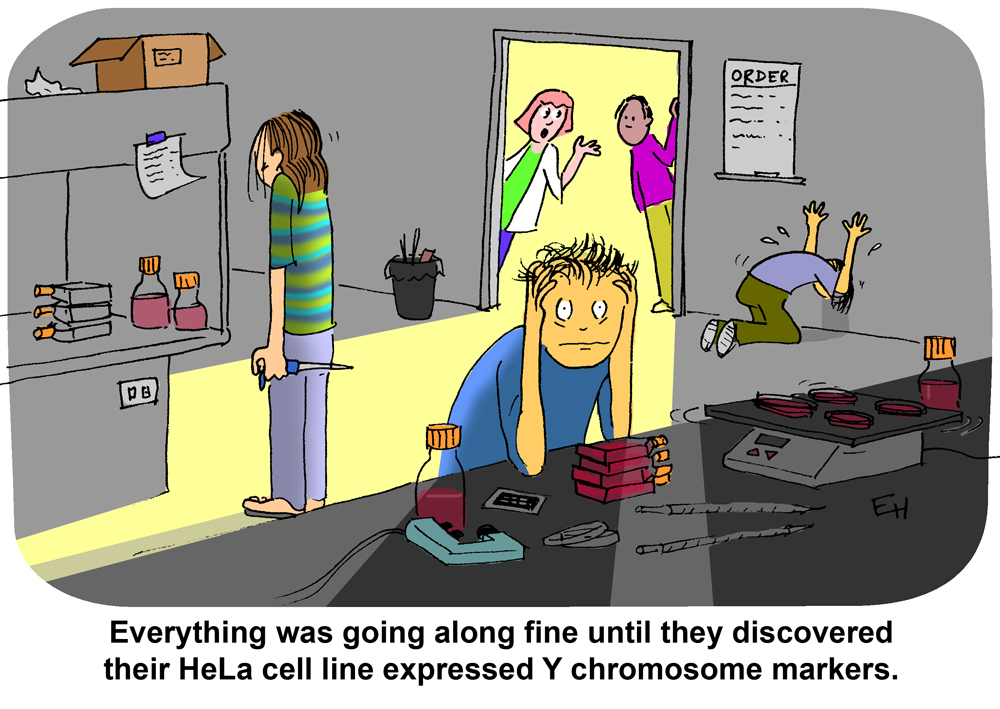At CellSecure we are redefining the standards of cell culture quality control by delivering innovative, reliable, and rapid molecular solutions.
Our patented technology enables the simultaneous detection of mycoplasma contamination and authentication of cell lines in a single workflow—saving time, reducing risk, and improving the integrity of biomedical research and bioproduction processes.
Developed by a multidisciplinary team of scientists, our system combines STR-based cell line authentication and sensitive multiplex PCR-based mycoplasma detection into one streamlined assay.
Using advanced fluorescence-based capillary electrophoresis, our platform offers high sensitivity, specificity, and reproducibility, all within a single-tube reaction.
We serve academic institutions, biotech companies, and pharmaceutical manufacturers who demand confidence in their cell-based systems. Our goal is simple: to eliminate cell misidentification and microbial contamination from the life sciences—one sample at a time.
cellsecure is headquartered in Bursa, Türkiye, and operates with a commitment to scientific integrity, regulatory compliance, and accelerating innovation across the life sciences ecosystem.
Did you know? It is estimated that 15% to 35% of cell lines used in biomedical research are misidentified, cross-contaminated, or otherwise compromised — and this problem has persisted for decades.
Cell line cross-contamination occurs when one cell line is unintentionally overgrown or replaced by another, often more aggressive line, such as HeLa. These incidents are often invisible to the naked eye and can go undetected for years. Yet they have far-reaching consequences:
🔬 Invalid results: Experiments conducted on misidentified cell lines lead to false data, undermining reproducibility and scientific integrity.
💸 Wasted resources: Millions of dollars in grant funding, reagents, and labor are lost every year due to contaminated or misidentified cultures.
📉 Retracted publications: Hundreds of scientific papers have been retracted due to use of false or contaminated cell lines, affecting careers and reputations.
⚖️ Ethical concerns: Unreliable results can delay drug development and mislead clinical decisions, impacting patient safety and public trust.
"It’s not just a lab problem—it’s a global scientific crisis."
— International Cell Line Authentication Committee (ICLAC)
Despite the availability of STR-based authentication technologies, routine verification of cell lines is still not a universal standard in many labs and institutions. This has led to a silent but persistent contamination of the global scientific literature, especially in cancer research, regenerative medicine, and drug screening studies.
At CellSecure, we believe that every experiment deserves a clean start. That’s why we have developed a rapid, affordable, and reliable platform that combines cell line authentication and mycoplasma testing in a single assay — so that researchers can validate their cells before it's too late.
Cell lines are the backbone of modern biology. Yet, thousands of studies have been compromised due to a single, avoidable problem: cell line misidentification.
Despite best intentions, sharing cells between laboratories — often without re-authentication — is one of the primary drivers of this issue. Cells are exchanged across departments, institutions, or even countries, with the assumption that their identity is still intact. But is it?
This scenario has played out thousands of times in published literature, sometimes with devastating consequences. One well-known example is the case of the KB cell line, thought to be of oral cancer origin, which turned out to be HeLa. Dozens of papers, grant proposals, and even clinical decisions were based on wrong biology.
🔍 Fact: ICLAC maintains a database of over 500 misidentified or contaminated cell lines — many of which are still cited in current publications.
🧪 Contaminated knowledge: Once false data enters the literature, it spreads and influences other work.
💰 Wasted investment: Time, money, and trust are lost.
🧬 Research integrity at risk: Even the most advanced techniques yield meaningless results when the starting material is wrong.
⚖️ Ethical responsibility: Especially in preclinical and translational research, misidentified cells can lead to flawed drug targets and patient harm.
Always verify — never assume. At cellsecure, we empower scientists to validate their cell lines before use. Our patented multiplex platform enables STR-based cell line authentication and mycoplasma detection in a single reaction. Whether you received cells from a collaborator, repository, or legacy freezer stock, validation is your first step to trustworthy data.
“Every new cell line is an unknown — until it’s proven.”
Electronmicroscopic photograph of a HeLa cell infected with M. hyorhinis.
You can’t see it. You can’t smell it. Your cells may even look fine under the microscope.
But mycoplasma contamination could be sabotaging your experiments from the inside out.
Mycoplasmas are bacteria without a cell wall, making them too small to be seen by standard light microscopy and too resilient to be eliminated by most antibiotics. They infiltrate cell cultures silently, often spreading via contaminated reagents, lab personnel, or — most commonly — cross-contaminated cell lines.
🔍 Up to 35% of continuous cell cultures worldwide are estimated to be contaminated with mycoplasma — often unknowingly.
— Drexler & Uphoff, 2002; ICLAC, 2023
Even low-level mycoplasma contamination can have profound effects on your cells and your data:
📉 Alters gene expression
🔬 Affects cell metabolism and morphology
💊 Skews drug response and toxicity studies
📊 Compromises reproducibility and data integrity
🚫 Leads to publication retractions and grant rejections
Unlike bacterial or fungal contamination, mycoplasma doesn’t cause turbidity or odor — it lurks undetected, allowing researchers to unknowingly produce unreliable results for weeks or months.
“Mycoplasma is the contamination that fools even experienced scientists.”
Despite its impact, routine mycoplasma testing is still not universally implemented in academic and industrial labs. Many institutions rely on outdated or insensitive methods — or worse, skip testing entirely.
At CellSecure, we take this risk seriously. Our integrated mycoplasma and STR authentication assay enables you to:
✅ Detect contamination with high sensitivity
✅ Validate your cell line identity
✅ All in a single, efficient reaction
Whether you're preparing a publication, screening a drug, or scaling up for manufacturing — start with clean, validated cells.
Because contamination you can’t see is still contamination.
ATCC services
Total of $373
CELLSECURE
Only $100
DSMZ services
Total of 450 €

Authors of a molecular biology paper have pulled it after realizing that their cell lines were contaminated. According to the notice in Molecular Biology of the Cell (MBoC), the contamination occurred by “unknown means” in the senior authors’ laboratory, who told us the mistake was a difficult one to catch. He added that they discovered the problem …

What if we told you that approximately 1 in 6 researchers working with human cells are using the wrong cell line? In other words, they believe they are studying the effects of a drug on breast cancer cells, for instance, but what they really have are cells from the bladder. That is the unfortunate reality in life science research today, affecting hundreds of labs. It’s a major source of problematic papers which cannot be replicated, wasting scientists’ time and funding.

Human cell lines represent key reagents for many research laboratories. Cell lines are often the first models that researchers choose for experiments such as gene manipulation and drug testing, as they are relatively accessible and inexpensive, particularly compared with mouse and other animal models. However, cell lines also are prone to contamination by other faster … Continue reading

Have a question, need a quote, or just want to say hello?
We’d love to hear from you.
Whether you’re planning your next experiment, need support interpreting results, or want to learn more about our services — our team is here to help.
📬 Fill out the form below or reach us directly at info@cellsecure.life.
Let’s build better science together.
is proudly offered by Mygene and Dirim Biotechnology—combining molecular expertise and diagnostic precision to support your research with confidence.
Whether you're preparing for publication, seeking routine testing, or facing urgent contamination concerns, our team is here to help.